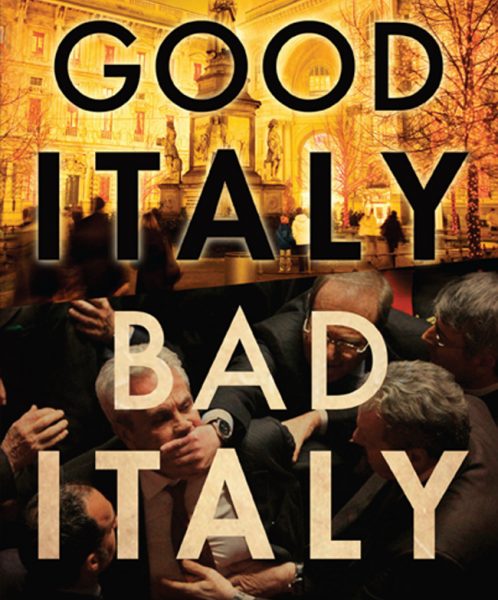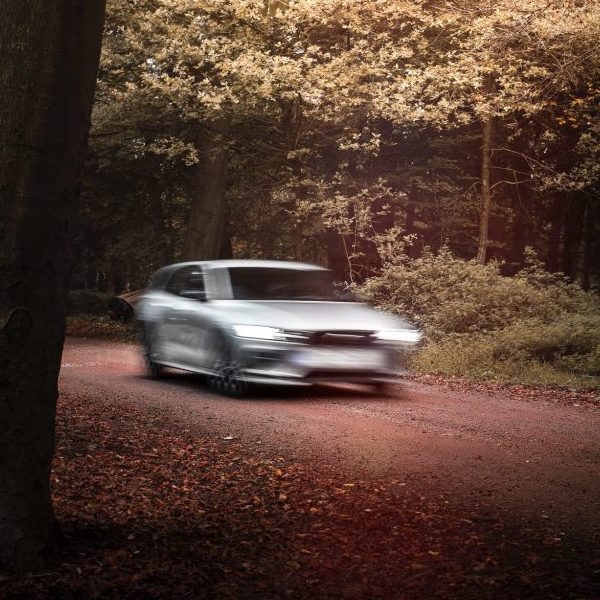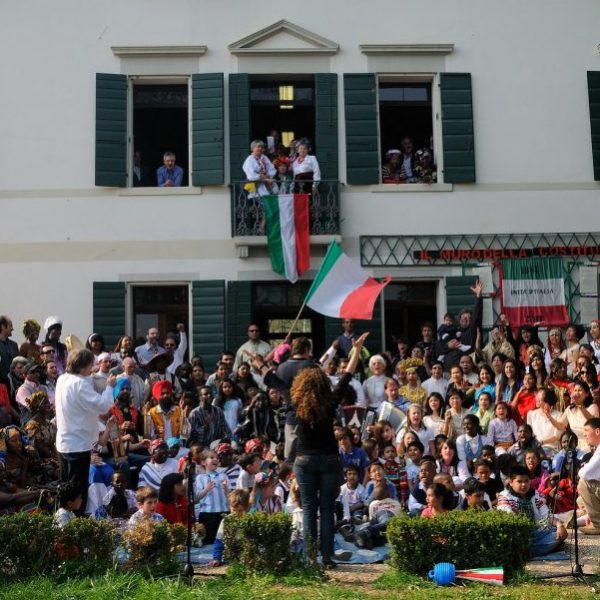Dante’s Inferno and Paradise in Modern Times: Good Italy, Bad Italy
The plot of what is arguably the most important work of Italian literature, La Divina Commedia (Divine Comedy), is known to many of us: guided by his muse, Beatrice, Dante journeys throughout l’Inferno (Hell) and il Purgatorio (Purgatory) until he reaches il Paradiso (Heaven). 700 years after its creation, what significance does the epic poem have for us today, in a world where medieval beliefs about the afterlife don’t have the same weight as they did then?
 For Bill Emmott, former editor-in-chief of The Economist and author of the recent book, Good Italy, Bad Italy: Why Italy Must Conquer Its Demons to Face the Future, the poem’s relevance lies in its exploration of “a very Italian sort of divide,” one that continues to this day in the form of “a divide between selfish, closed, unmeritocratic and often criminal ways of doing things, and more open, community-minded and progressive ways.” In other words: there is Good Italy … and then there is Bad Italy.
For Bill Emmott, former editor-in-chief of The Economist and author of the recent book, Good Italy, Bad Italy: Why Italy Must Conquer Its Demons to Face the Future, the poem’s relevance lies in its exploration of “a very Italian sort of divide,” one that continues to this day in the form of “a divide between selfish, closed, unmeritocratic and often criminal ways of doing things, and more open, community-minded and progressive ways.” In other words: there is Good Italy … and then there is Bad Italy.
Bad Italy
“Just as in Dante’s time, Italy’s ills today reflect the country’s loss of its moral compass, as well as the failure of enough people to show moral courage, to take a stand.”
What characterizes Bad Italy is, above all, selfishness. Emmott explains this as “the urge to seek power in order to use it for self-interested purposes, to amass power to reward friends, family, bag-carriers and sexual partners regardless of merit or ability … by enriching themselves at the expense of others.” Corruption pervades networks in many institutions: university faculties, businesspeople, politicians, Church organizations and mafia groups. This “cancer,” as Emmott labels it, was aggravated by the decisions of Silvio Berlusconi—who has long been a target of Emmott’s criticism—and continues to threaten the success of reforms in the country today.
It doesn’t help, either, that few people are standing up to such vices. Emmott cites the phrase ‘cosi fan tutte’ as being something of a national slogan: everybody is doing it, so why shouldn’t I? But subscribing mindlessly to the predominant mode of thinking helps nobody. Emmott quotes President John F. Kennedy’s misquote of Dante to drive home the point: “the hottest place in Hell should be for those that in times of great crisis maintain their neutrality.”
Good Italy
“[T]he Good Italy resides … in moral sentiments, fellow-feeling, and cooperative instincts, in its ‘Big Society’, but also in a spirit of openness, a desire for progress and modernity, a desire for Smith for ‘the wealth of nations’ not just the wealth of individuals and groups.”
Yet Emmott is also emphatic in pointing out that this inferno of crookedness and apathy in no way defines the entire country. He writes of meeting “more and more young people who turned out to be open-minded, positive in attitude, connected to the world and dedicated to changing things for the better.” Examples include the anti-mafia organizations Addiopizzo (“Goodbye, protection money”) and E Adesso Ammazzateci Tutti (“Now kill us all”), entrepreneurs, think-tanks and Rete per l’Eccellenza Nazionale (RENA), the Network for National Excellence.
Emmott spares no rhetoric in asserting the importance of Good Italy’s role: “The reason why Italy does fly, why it doesn’t tumble tragically to the ground, is that the Good Italy stops it from crashing, by fighting back against the Bad, by pushing back the line between the two.” Now, however, the problem is that the Bad has the upper hand. In this important and timely assessment of Italy, Emmott not only paints a picture of a polarized nation but also suggests how it can work toward a brighter future; one that more closely resembles Dante’s vision of “a balanced wheel rotated evenly,/By the Love that moves the sun and other stars.”





Awesomeness.